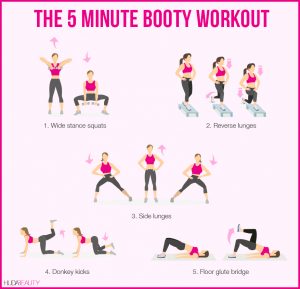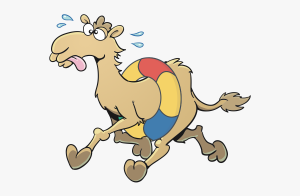War Booty
Two days ago, the Oisvorfer disseminated his Special Edition rant on the war of words raging between the Vaad of the 5 towns and the new kids on the block, the Kosher Mehadrin. In the end, this war is about two things; control and booty: who wields power over kosher in these 5 Towns, and how to split the monthly fees collected by agencies that certify products and establishments as kosher. Having spoken to a few rabbis -who called to agree or not with what was written- the Oisvorfer will be sending out an update in the coming days but wants his readers to know that there are community rabbis on the Board of the Vaad that he respects greatly.
 A number of those I spoke to today do agree – though maybe not publicly- that certain behaviors on the part of those managing the Vaad, might have led to the breakaway and formation of a new agency offering kosher certification. All that for Part 2, look for it next week. Ober, let’s talk parsha.
A number of those I spoke to today do agree – though maybe not publicly- that certain behaviors on the part of those managing the Vaad, might have led to the breakaway and formation of a new agency offering kosher certification. All that for Part 2, look for it next week. Ober, let’s talk parsha.
Interestingly enough, this week’s parsha of Matos, being read with its sister parsha of Masi to close out Sefer Bamidbar, features a war and the splitting of booty. A real war and lots of booty. While many have vague memories of the RBSO ordering Moishe to wage a revenge war against the Midianites for their –seemingly- central role in supplying hundreds or perhaps even thousands of hookers with whom many Yiddin had relations while also performing dastardly acts of avoido zoro- most of you will barely recall what happened next. Let the Oisvorfer –as only he can- make it all relatable by offering a shtikel summary of the war and its spoils.
Ershtens (firstly), what is booty? Nu, according to poshit pshat as found in the dictionary, booty refers to valuable goods seized in war. Ober where did the term booty originate? Says Merriam-webster.com azoy: It’s a slang word that has surprisingly old origins: it comes from booty, an Early Modern English (early 16th century to the mid-late 17th century) word meaning “buttocks.” The modern English form booty, though, does not appear until a couple decades into the 20th century. Shoin, whether booty refers to ‘tuchis,’ or valuable goods, seemingly both definitions will fit as we review how the Yiddin got to enjoy war booty. Veyter. In any event, a very significant amount text in Parshas Matos, is devoted to the disposition of booty from the war with Midian – in particular, tallying the sums of each type of material and gifting a percentage for holy purposes. How significant? Let’s look at the numbers. Matos contains 112 pisukim of which 54 –or 48%- are dedicated to the war effort and aftermath. Of those 54, 37 –or a full 68.5%- are dedicated to the booty. And that Raboyseyee is significant. Nu, if the RBSO dedicated 68% of the war topic to booty, mistama He wants us to know that chapping and distributing booty is important. Is it a mitzvah to chap booty? More on that in the closing paragraphs. What took place?
 The RBSO ordered a war. He was, as mentioned above, still smarting over the sex orgies engineered -efsher by Bilam- and executed by the participating Moabite and Midianite comfort girls. Moishe was instructed –as his last assignment before his own passing- to arrange an army, and Pinchas was appointed war General. Let’s recall that he excelled at killing people. The instructions were to kill all males and females, burn down the city and also grab all the booty which included livestock, humans, and other valuable such as gold, silver, trinkets and schamttis. Ober the Yiddin had rachmunis (mercy) and did not kill all as instructed. They came back with children and many women captives. As an aside, in a number of weeks, we will be learning how the RBSO allows –under certain conditions- for men, seeking pleasure if you chap, to chap women captives; the RBSO is great, mamish! Ober let’s not confuse the girls with whom one can chap as one desires (at least once) with the hot shiksa Midianite women whom the RBSO ordered to be killed. In any event, Moishe –upon seeing that women captives were included in the booty- was quite upset and ordered all males –including the younger ones to be killed as well as all females who were known to have been sexually active. In other words: virgins were to live, all others to die. Shoin! How was the checking conducted and who was empowered to check for signs of virginity? Ver veyst! Was there a separate Vaad for this function? We have previously –in years past- covered the topic of the male and female booty, ober this year and brand new, we shall take a not so short but closer look at how the booty was to be split.
The RBSO ordered a war. He was, as mentioned above, still smarting over the sex orgies engineered -efsher by Bilam- and executed by the participating Moabite and Midianite comfort girls. Moishe was instructed –as his last assignment before his own passing- to arrange an army, and Pinchas was appointed war General. Let’s recall that he excelled at killing people. The instructions were to kill all males and females, burn down the city and also grab all the booty which included livestock, humans, and other valuable such as gold, silver, trinkets and schamttis. Ober the Yiddin had rachmunis (mercy) and did not kill all as instructed. They came back with children and many women captives. As an aside, in a number of weeks, we will be learning how the RBSO allows –under certain conditions- for men, seeking pleasure if you chap, to chap women captives; the RBSO is great, mamish! Ober let’s not confuse the girls with whom one can chap as one desires (at least once) with the hot shiksa Midianite women whom the RBSO ordered to be killed. In any event, Moishe –upon seeing that women captives were included in the booty- was quite upset and ordered all males –including the younger ones to be killed as well as all females who were known to have been sexually active. In other words: virgins were to live, all others to die. Shoin! How was the checking conducted and who was empowered to check for signs of virginity? Ver veyst! Was there a separate Vaad for this function? We have previously –in years past- covered the topic of the male and female booty, ober this year and brand new, we shall take a not so short but closer look at how the booty was to be split.
Did every soldier eat what he killed? In other words: did every soldier keep what he brought back? Or, was all booty put into one pot -as they do in certain eating establishment- and then split accordingly among all the soldiers? Were there inspectors to ensure that no one soldier lined his pockets? Did others –specifically those who did not go to war, get to enjoy the spoils of war? How was the young female virgin booty mamish, spilt up? How did the wives react when soldiers and others came home with live booty? Zicher all this sounds rather amazing to many of us today, ober back in the year 2488, very shortly before the midbar experience was coming to an end, this was very real. It’s right there in the heylige Toirah! And the answers? The RBSO laid out very detailed and specific guidelines on booty splitting. The bottom line: In addition to the wealth the Yiddin left Mitzrayim with, and to the wealth washed up as the pursuing Mitzrim drowned in the sea, the RBSO was about to gift the Yiddin with additional wealth. As they entered the Promised Land, it appears that each one arrived with livestock, jewelry, young shiksa maidens, and other materials. In other words: no one was under any particular pressure to look for a job or start a business. And they all had housekeepers. Shoin! Another bottom line: when the RBSO declares war and instructs the Yiddin to wage it, He makes sure that His army will be victorious. Moreover, He makes it worth their while. As an aside, as an additional bonus, the RBSO also made sure that not one soldier fell during the battle of Midian.
Shoin, let us the read the fascinating instructions on the booty. Raboyseyee, this is not medrish (which of course I love), these pisukim are directly from the heylige Toirah (which I love even more). In this case, it’s particularly important that you read the pisukim innaveynig as they are mamish mind boggling.
- The children of Israel took the Midianite women and their small children captive, and they plundered all their beasts, livestock, and all their possessions.
10. They set fire to all their residential cities and their castles.
11. They took all the booty and all the plunder of man and beast.
12. They brought the captives, the plunder, and the booty to Moshe and to Elozor the Kohen and to the entire community of Israel in the camp, in the plains of Moab by the Jordan at Jericho.
13. Moshe, Elozor the Kohen, and all princes of the community went out to meet them, outside the camp.
14. Moshe became angry with the officers of the army, the commanders of thousands and the commanders of hundreds, who had returned from the campaign of war.
15. Moshe said to them, “Did you allow all the females to live?
16. They were the same ones who were involved with the children of Israel on Balaam’s advice to betray the Lord over the incident of Peor, resulting in a plague among the congregation of the Lord.
17. So now kill every male child, and every woman who can lie intimately with a man you shall kill.
18. And all the young girls who have no experience of intimate relations with a man, you may keep alive for yourselves.
19. And you, encamp outside the camp for seven days; whoever killed a person or who touched a corpse shall cleanse himself on the third and seventh day, both you and your captives.
20. All garments, leather articles, any goat product, and every wooden article shall undergo purification.”
21. Elozor the Kohen said to the soldiers returning from battle, “This is the statute that the Lord commanded Moshe.
22. Only the gold, the silver, the copper, the iron, the tin, and the lead
23. Whatever is used in fire you shall pass through fire and then it will be clean; it must, however, [also] be cleansed with sprinkling water, and whatever is not used in fire you shall pass through water.
24. You shall wash your garments on the seventh day and become [ritually] clean; afterwards, you may enter the camp.”
25. The Lord spoke to Moshe, saying,
26. “Take a count of the plunder of the captive people and animals, you, together with Elozor the Kohen and the paternal leaders of the community.
27. And you shall divide the plunder equally between the warriors who went out to battle and the entire congregation.
28. And you shall levy a tax for the Lord from the soldiers who went out to battle: one soul out of every five hundred, from the people, from the cattle, from the donkeys, and from the sheep.
29. You shall take from their half and give it to Elozor the Kohen as a gift to the Lord.
30. From the half belonging to the children of Israel you shall take one part out of fifty of the people, of the cattle, of the donkeys, of the sheep, and of all animals, and you shall give them to the Levites, the guardians of the Mishkan of the Lord.”
31. Moshe and Elozor the Kohen did as the Lord had commanded Moshe.
32. The plunder, which was in addition to the spoils that the army had spoiled, consisted of six hundred and seventy five thousand sheep.
33. Seventy two thousand cattle.
34. Sixty one thousand donkeys.
35. As for the people, of the women who had no experience of intimate relations with a man, all souls were thirty two thousand.
36. The half that was the portion of those who went out to battle: the number of sheep was three hundred and thirty seven thousand, five hundred.
37. The tax to the Lord from the sheep was six hundred and seventy five.
38. Thirty six thousand cattle, of which the tax to the Lord was seventy two.
39. Thirty thousand and five hundred donkeys, of which the tax to the Lord was sixty one.
40. Sixteen thousand people, of which the tax to the Lord was thirty two people.
41. Moshe gave the tax which was a gift to the Lord, to Elozor the Kohen, as the Lord had commanded Moshe.
42. And from the half allotted to the children of Israel, which Moshe had divided from the men who had gone into the army.
43. The community’s half [consisted of] three hundred and thirty seven thousand, five hundred sheep.
44. Thirty six thousand cattle.
45. Thirty thousand five hundred donkeys.
46. And sixteen thousand people.
47. Moshe took one part out of fifty from the half of the children of Israel, the people and the animals, and gave them to the Levites, the guardians of the Lord’s sanctuary as G-d commanded Moshe.
48. The officers appointed over the army’s thousands, the commanders of thousands and the commanders of hundreds, approached Moshe.
49. They said to Moshe, “Your servants counted the soldiers who were in our charge, and not one man was missing from us.
50. We therefore wish to bring an offering for the Lord. Any man who found a gold article, be it an anklet, a bracelet, a ring, an earring, or a body ornament, to atone for our souls before the Lord.
51. Moshe and Elozor the Kohen took all the gold articles from them.
52. The total of the gift of gold which they dedicated to the Lord [amounted to] sixteen thousand, seven hundred and fifty shekels; this was from the commanders of the thousands and the commanders of the hundreds.
53. The soldiers had seized spoils for themselves.
54. Moshe and Elozor the Kohen took the gold from the commanders of the thousands and hundreds and brought it to the Tent of Meeting, as a remembrance for the children of Israel before the Lord.
 Shoin, now that you read -many of you first time in your lives- the detailed instructions, efsher you’re wondering azoy: Why taka is war booty given so much attention? Is Jewish warfare waged for the sake of booty? Isn’t it emes that at times, booty is mamish forbidden (especially so if one is married)? It is! What’s pshat with all this booty? But wait, a few more questions might be bothering you: What is the bottom line of how booty was divided? Who got what and why? Why the need for repetitive detail in the splitting of the booty between the soldiers and the other Yiddin? Why shouldn’t the battle soldiers keep it all? Why were only living beings (animals and captives) split but not the inanimate spoils (to include gold and jewelry)? What lies behind the calculation of amounts and percentages to each group? The list of animals taken as spoils delineates sheep, cattle and donkeys. Why only these animals? What about the camels that are typically found in the desert? Shoin so many questions, ober can we find a few answers? Lets us try and let’s begin here.
Shoin, now that you read -many of you first time in your lives- the detailed instructions, efsher you’re wondering azoy: Why taka is war booty given so much attention? Is Jewish warfare waged for the sake of booty? Isn’t it emes that at times, booty is mamish forbidden (especially so if one is married)? It is! What’s pshat with all this booty? But wait, a few more questions might be bothering you: What is the bottom line of how booty was divided? Who got what and why? Why the need for repetitive detail in the splitting of the booty between the soldiers and the other Yiddin? Why shouldn’t the battle soldiers keep it all? Why were only living beings (animals and captives) split but not the inanimate spoils (to include gold and jewelry)? What lies behind the calculation of amounts and percentages to each group? The list of animals taken as spoils delineates sheep, cattle and donkeys. Why only these animals? What about the camels that are typically found in the desert? Shoin so many questions, ober can we find a few answers? Lets us try and let’s begin here.
Sometime after the victorious military campaign against Midyan, (pisukim 31:25-47), all booty -humans and animals- was counted and divided in half. One half was designated for the soldiers who fought the war and the other half for the rest of Yiddin. Of the half that went to the soldiers, one out of 500 was to be given to Elozor the Koihen Godol. Of the 1/2 that went to the rest of the nation, one out of 50 was given to the Levi’im. Did you chap that? Nuch a mol (one more time): soldiers gave 1/500; the other Yiddin gave 1/50, or ten times as much! Why? One gishmak answer teaches us a lesson: one is obligated to be more generous with windfall money than with money earned. It’s more difficult to part with hard earned cash; less is expected of that person. War soldiers who put their lives at risk were therefore tithed at 1/500, while the Yiddin who stayed behind to either guard the camp or efsher learn the heylige Toirah -non working class- were tithed at 1/50. The bottom line: one should not compare his donation to anyone else’s; to each their own.
Next: returning soldiers only had to split living beings (animals and captives) but kept for themselves all other objects. From these living beings half were given to the other Jews, those who did not come into battle. Ober why taka split booty? Ershtens, it’s what the RBSO called for. Alternatively, booty splitting was already established hundreds of years back when Avrohom Ovenu just back from war against the kings back in Bereishis (see Rashi, 14:24), did just that. The standard practice was to split the spoils between the soldiers and those who stayed behind to guard their belongings. However, since there were different dangers involved to each, the soldiers who actually entered battle would take a larger share. Moreover, living beings –though war captives- required care and therefore, the burden was on everyone to share. Pshat being that post war, all Yiddin had some responsibly, therefore the booty was shared. On the other hand, inanimate booty, which was not burdensome to others, was to be kept by each soldier. And so taka says Rav Shamshon Refoel Hirsch; who are you to argue?
Alternatively, inanimate booty could easily be hidden in sacks meaning that other Yiddin never laid their eyes on it, and therefore were not jealous over such booty. Lesson learned: if you have booty, it’s efsher better not to flaunt it. It’s human nature to be jealous of someone else’s booty, if you chap. On the other hand, live spoils of war (as in humans and animals) were seen by everyone and therefore, to avoid jealousy, needed to be split. Adds the Shach azoy: living beings can walk by themselves, and there was no extra bother in bringing them back. Therefore, to prevent jealousy they were split. However, inanimate booty needed to be carried by the soldiers and because of this extra work, they were rewarded by keeping it all. A war incentive if you will. Shoin! Says the Chizkuni azoy: smaller amounts were taken from the soldiers since they were more at risk in battle than the other Yiddin left guarding the camp. Veyter: Ober, what about the camels? Says Toisfis: there weren’t any to be found in the midbar? Don’t like that pshat? You think camels were found in the midbar? Ok, try this pshat: there were camels in the midbar. Oib azoy (if so), why weren’t they taken as booty? Says the Imrei Noaim azoy: they were fast runners and avoided capture. Shoin!
That’s all very nice indeed ober why taka was so much space dedicated by the RBSO to these details? According to some, this division of booty was mamish a mitzvah the RBSO added. Says the Bahag: the separation of mechess (tax) is one of the 613 mitzvos of the Toirah. Is that so? Says the RambaM: the mitzvah of booty splitting post was applied only to that time. Ober says the RambaN azoy: the Bahag’s application of this mitzvah remains in force throughout time: Whenever the Jewish nation wages war, a portion of the spoils must be given to the sanctuary. And the bottom line? Why taka was so much space dedicated to this war tax? Why was booty split? Are there active kohanim without temple service? Nu, we must conclude azoy: if the RBSO dedicated that much space to booty, there are lessons to be learned even in the absence of the Beis Hamikdash, ober what are they? Says Rav Nebentzhal, azoy: while the actual mitzvah may not have practical application as a result of the above factors, its “spirit,” the underlying lessons that may be derived from it, are instructions whose relevance is certainly germane in today’s society. Our sages (Meseches Derech Eretz Zuta 4) tell us azoy: if one came into money without exerting any toil, the way to ensure it remains in his possession is to include the RBSO as his “partner” in the venture. The RBSO will make sure the money grows and multiplies. Pshat is azoy: one who performs a mitzvah with his money demonstrates that he is an astute investor and should be granted more opportunities for “investment.” Furthermore, when one begins with a mitzvah, it has an effect on his other possessions. This is an individual to whom money is considered a gift from G-d, so it should be acknowledged and appropriated for mitzvos.
 The bottom line: if you come into booty, it’s nice and perhaps even a mitzvah to share, and if chapped with booty, one can try explaining that one went to war and is merely performing a mitzvah. Warning: results not guaranteed!
The bottom line: if you come into booty, it’s nice and perhaps even a mitzvah to share, and if chapped with booty, one can try explaining that one went to war and is merely performing a mitzvah. Warning: results not guaranteed!
A gittin Shabbis!
The Heylige Oisvorfer Ruv
Yitz Grossman

